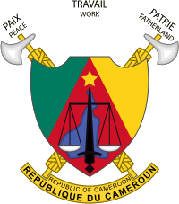The 6th edition of the National Days of Social Economy (JNES 2023) took place from 24 to 26 October 2023, at the Yaoundé City Hall, under the chairmanship of the Minister of SMESEH, personal representative of the Prime Minister, Head of Government, sponsor of the event. The theme of the JNES 2023 was “Mobilising Community Networks and building partnerships”, as part of the implementation of the strategy to promote entrepreneurship in line with the objectives of the SND30.
The event was opened by a solemn ceremony presided over by Minister Achille Bassilekin III, in the presence of the Ministers of Employment and Vocational Training, Agriculture and Rural Development, Livestock, Fisheries and Animal Industries, and the Minister of Social Affairs. Numerous representatives of Diplomatic Missions and International Organisations, General Managers and MINPMEESA officials were also present. The inaugural lecture on the central theme by Mrs EYEBE EFFA Pauline, Coordinator of the NGO Partenariat France Afrique pour le Co-développement (PFAC) set the scene and the sittings continued with panels and workshops until Wednesday 25 October 2023. These various events enabled the Social Economy players to realise that the involvement of each and every one of them remains an imperative if the structuring undertaken by MINPMEESA is to succeed.
An exhibition hall was opened for players in the social economy sector from the country’s ten regions, to showcase their wealth and dynamism. The wide-ranging exhibition was a showcase for the benefits of this promising sector of the Cameroonian economy.
The closing ceremony on 26 October 2023 was attended by a host of prominent figures, as well as the various regional and divisional MINPMEESA Delegates.
In expressing his satisfaction, Minister Achille Bassilekin III was keen to point out that “the reality of social economy in our country revolves around the structuring of players, and the success of this structuring will pave the way for better integration of these players into economic circuits, production circuits and job creation circuits to improve living standards”.
At the end of the three-day proceedings, which included workshops on a number of themes focusing on the development of Social Economy Units, some recommendations were made. For all the players involved, the aim was to develop special inter-network partnerships between dedicated banks, trade unions and private companies; the purchase of local products by public administrations; and to build the capacity of local players to set up a structured ecosystem. As far as the public authorities are concerned, the aim is to speed up the effective establishment of a permanent and expanded framework for consultation between players in the social economy sector; to facilitate the promotion of Made in Cameroon through the setting up of showcase shops and retail outlets for local products bearing the ANOR and LANACOME labels.
It was recommended that the local authorities regularly organise fairs to promote “Made in Cameroon” and ensure that the networks are properly structured. For MINDDEVEL, it was recommended that the legal framework of the CTDs be strengthened to enable them to have greater management autonomy in local economic development initiatives. Lastly, MINPMEESA should promote close collaboration between decentralised entities and the RLAs in order to inform mayors of the missions devolved to the sectoral administrations; facilitate the incubation of players; increase the missions of control and evaluation of the skills of the resources transferred to the RLAs for the benefit of Social Economy Units. These recommendations, far from being exhaustive, were presented by Joseph AHANDA, Director of Social Economy at MINPMEESA, assisted by Mrs YAKANA Stella, Head of the Translation Unit, who provided the English version.
Finally, MINPMEESA Achille BASSILEKIN III insisted on speeding up the setting up of the National Council for Social Economy provided for in the Framework Law, which today appears to be a necessity. It will consider all issues relating to social economy and its players.

